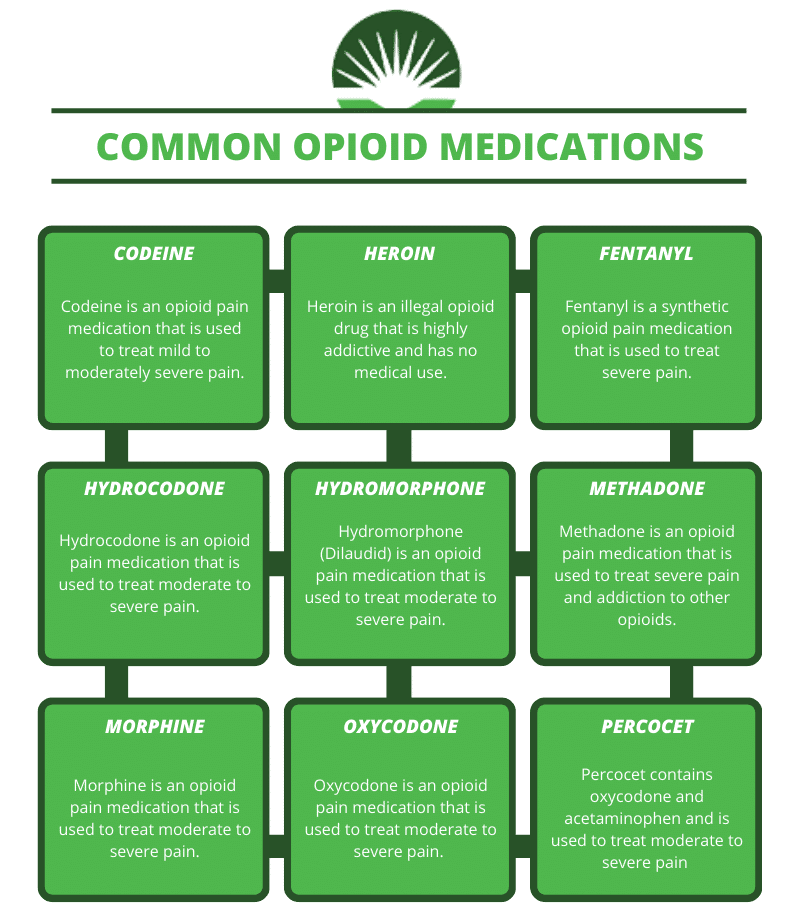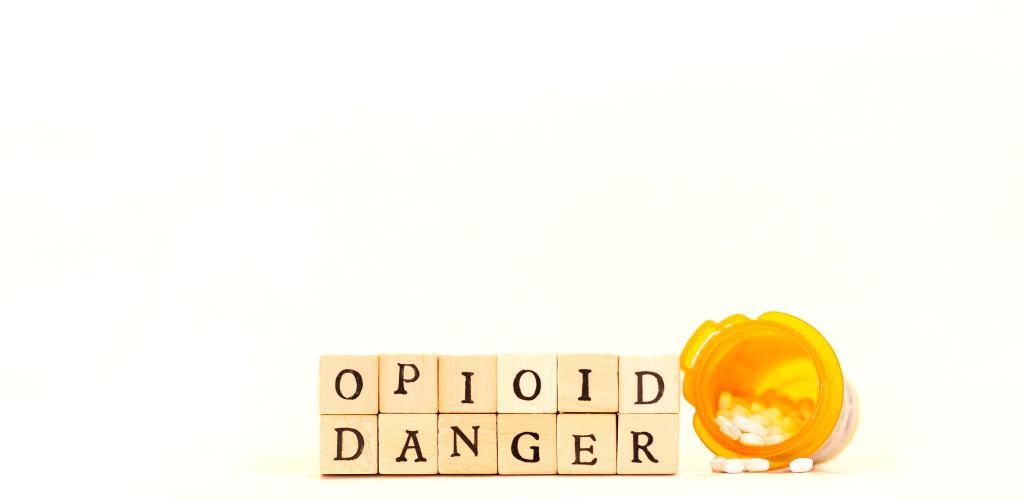Opioid use is an epidemic in the United States. The levels of opioid abuse reached a crisis point in 2017 when governmental agencies and health experts declared the issue a public health emergency. This was a critical step in addressing the issue of opioid use and abuse, but addiction specialists strongly believe that the country is in trouble.
In 2021, about 5.0 million people reported having an addiction to prescription opioids during the previous year.[1] The number of people seeking treatment for opioid abuse climbed nearly 400% between 2002 and 2012, and the problem shows no signs of slowing down. Sadly, the number of opioid-related overdose deaths surpassed 100,000 for the first time in 2021.[2]
Understanding the long-term effects of opioid abuse, recognizing the signs of opioid abuse, and knowing how to get help can help you make informed choices about seeking treatment. Reach out to the Woburn Wellness Addiction Treatment team now to explore your treatment options and learn about our opioid rehab programs.
What are Opioids?
Opioids are a class of drugs derived from opium, a compound derived from the seed pod of the opium poppy plant. Doctors prescribe opioid medications to treat moderate to severe pain, often after an injury, surgery, or chronic pain.
When users take an opioid medication, the drugs bind to the brain’s opioid receptors and nerve cells all over the body. The drugs keep pain messages from reaching the brain. This results in users experiencing less perceived pain.

Some common opioids include:
- Codeine
- Heroin
- Fentanyl
- Hydrocodone
- Hydromorphone (Dilaudid)
- Methadone
- Morphine
- Oxycodone (OxyContin)
- Percocet
Opioid medications are believed to be safe if people take them exactly as prescribed. Doctors often prescribe opioid painkillers for short-term use to limit the risk of health complications and addiction.
Some users experience pleasurable feelings of calm or euphoria when taking opioid medications. These feelings can make people want to take opioid medications differently than prescribed–either for longer than intended, in higher doses, or more frequently than they should. Misusing opioids can lead to tolerance, meaning more of the drug is required to provide the desired effects.
What are the Long-Term Effects of Opioid Abuse?
Misusing opioids can have serious, long-term effects on your physical and mental health. It’s important to get help for opioid abuse to avoid the sometimes life-threatening consequences.
Physical Long-Term Effects of Opioid Abuse
Opioids work by depressing the activity of the central nervous system. These drugs can slow down vital functions, including breathing and heart rate. Some of the other long-term effects of opioid abuse include:[3]
- Respiratory depression and breathing problems
- Cardiovascular disease and damage
- Collapsed veins (from long-term IV opioid use)
- Dangerously low blood pressure
- Irreversible damage to internal organs
- Brain damage or structural changes
- Heart failure
- Seizures
- Kidney and liver failure
- Cardiac arrest
- Difficult or painful urination
- Poor balance and coordination
- Digestive problems such as constipation
Physical Long-Term Effects of Opioid Abuse
Long-term opioid abuse can lead to addiction and other behavioral and mental health complications. Some of the long-term effects of opioid abuse can include the following:[4]
- Paranoia
- Insomnia
- Mood swings
- Depression
- Hallucinations
- Confusion
- Memory loss
- Personality disorder
- Poor concentration
- Suicidal ideation
Physical dependence and addiction are other long-term effects of opioid abuse. Opioid addiction can develop in as little as 2-3 weeks. After someone develops physical dependence, they may increase the frequency or amount they use, leading to heightened tolerance.
Post-Acute Withdrawal Syndrome (PAWS)
Post-Acute Withdrawal Syndrome (PAWS) is a complication of opioid abuse. Some people experience lingering symptoms of opioid withdrawal, including depression, insomnia, and cravings, for months or years after completing detox and treatment.[5] Longer periods of heavy opioid use can increase the likelihood of developing PAWS, but it can happen to anyone with opioid addiction.
What are the Signs of Opioid Abuse?
Early treatment for opioid addiction can lead to better outcomes and long-lasting recovery. Opioid abuse can significantly change a person’s mood, behavior, and appearance. Recognizing the signs of opioid abuse may help you seek treatment sooner.
Here are some signs that someone may be living with opioid abuse or addiction.
- Spending a lot of time and energy getting, using, and recovering from using opioids
- Neglecting responsibilities at school, work, or home due to opioid use
- Isolating from others or only spending time with others who use drugs
- Neglecting relationships, interests, or hobbies
- Facing financial or legal trouble because of opioid use
- Continuing to use opioids despite negative consequences
The sooner you recognize the signs and effects of opioid abuse, the sooner you can get the treatment you need to overcome it.
Treatment for Long-Term Opioid Abuse
Abuse often becomes the center of a person’s life. Going to rehab allows people to take back control over their lives. Opioid addiction treatment happens in stages, usually beginning with a medically-supported detox program.
After a safe, complete detox, people move on to a comprehensive treatment program that can address the roots of a person’s addiction. Treatment plans usually include:
- Individual therapy
- Group therapy
- Family counseling
- Education
- Medications
- Mental health treatment
- Holistic therapies–yoga, massage, nutrition therapy, mindfulness, acupuncture, and more
These evidence-based and holistic therapies allow people to identify the causes of their addiction and learn new skills to overcome it. They develop new relationships, routines, and coping skills that help them sustain sobriety for the rest of their lives.

Get The Care You Need and Deserve
Woburn Wellness Addiction Treatment is a leader in the addiction treatment field, with proven success in facilitating long-term recovery. Our team of top clinical & medical experts specializes in treating addiction coupled with mental illness, ensuring that each person receives individualized care. Call us – we’re available 24/day, 7 days/week.
Find Help for Opioid Abuse and Addiction Now
Opioid abuse and addiction can cost you everything. The help you need is just a phone call away. Reach out to the team at Woburn Wellness Addiction Treatment now to learn how our supportive, effective holistic treatment programs can help you regain control over your life and health. Call today.
References:
- https://nida.nih.gov/publications/research-reports/misuse-prescription-drugs/what-scope-prescription-drug-misuse
- https://www.nbcnews.com/health/health-news/cdc-says-drug-overdose-deaths-reached-highest-record-last-year-rcna28129
- https://www.ncbi.nlm.nih.gov/pmc/articles/PMC3466038/
- https://www.ncbi.nlm.nih.gov/pmc/articles/PMC7756048/
- https://www.semel.ucla.edu/dual-diagnosis-program/News_and_Resources/PAWS


